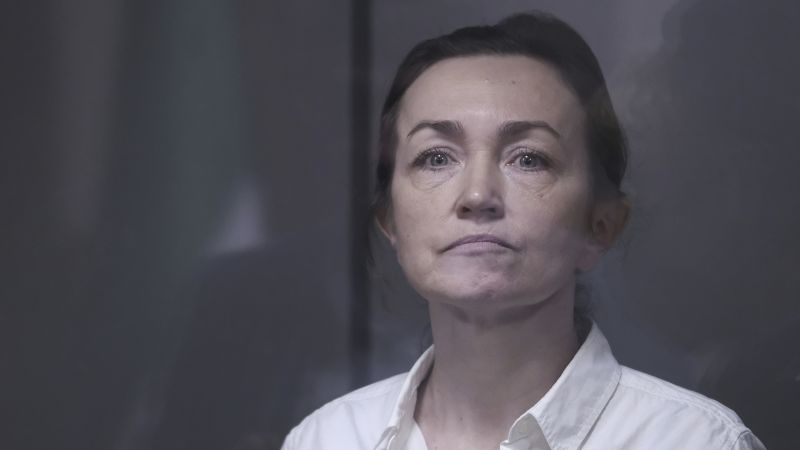Alsu Kurmasheva, a US-Russian journalist and editor for the Tatar-Bashkir service of Radio Free Europe/Radio Liberty (RFE/RL), has had her detention in Russia extended until June 5 for failing to register as a foreign agent. She expressed concerns about her physical well-being and the poor conditions in which she is being held, including a small cell without hot water and a hole in the floor serving as a toilet. Kurmasheva was originally detained in June 2023 in Kazan while waiting for a return flight to the Czech Republic, where she was based, and faced new charges in October related to her failure to register.
Despite her lawyer asserting her innocence and plans to appeal, Kurmasheva has been in detention since October. RFE/RL praised her as an accomplished journalist who has covered the lives of ethnic minorities in Tatarstan and Bashkortostan. Russia’s expansion of its law on “foreign agents” in 2022 has resulted in a harsh crackdown on free speech and opposition, targeting not only those receiving funding from abroad but also individuals deemed to be under foreign influence. This increased repression has been linked to President Vladimir Putin’s administration and the aftermath of Russia’s invasion of Ukraine.
The case of Alsu Kurmasheva is part of a larger pattern of hostility towards journalists in Russia. Wall Street Journal reporter Evan Gershkovich, who was arrested on espionage charges during a work trip, remains in pre-trial detention and could face up to 20 years in prison if convicted. Last week, six more journalists working for independent media outlets were arrested, including Antonina Favorskaya, who has been accused of “extremist activities” due to her coverage of the late Russian opposition leader Alexey Navalny. These arrests have sparked concerns about the shrinking space for free media and journalism in Russia.
The harsh treatment of journalists like Kurmasheva and Gershkovich reflects a broader trend of crackdowns on independent voices and media outlets in Russia. The use of vague and expansive laws on “foreign agents” has been a tool for silencing dissent and stifling critical reporting. The one-year anniversary of Gershkovich’s arrest serves as a reminder of the ongoing threats faced by journalists in a country where independent journalism is increasingly under attack. Pressure from international organizations, such as Reporters Without Borders, is crucial in advocating for the rights and safety of journalists working in hostile environments like Russia.
The conditions described by Kurmasheva in detention underscore the deplorable treatment faced by those who dare to challenge the authorities in Russia. Her situation and that of other journalists detained or targeted by the government highlight the risks journalists take in pursuing their work, particularly in environments hostile to independent reporting. The international community must continue to pressure the Russian government to respect press freedom and the rights of journalists, ensuring their safety and ability to report on issues of public interest without fear of reprisal. The case of Alsu Kurmasheva is a stark example of the challenges facing journalists in Russia and the urgent need for protection and support for those risking their lives to bring important stories to light.


